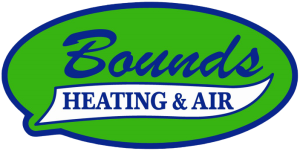When your AC loses efficiency, it costs you more money to operate it, and it suffers wear-and-tear faster than it should. Below, we explain some of the most common ways AC systems lose efficiency and what you can do about these problems.
HOW DO AIR CONDITIONING SYSTEMS LOSE EFFICIENCY?
1. Dirty Air Filters
Dirty air filters are one of the leading causes behind air conditioner and heater issues. When you don’t clean or replace your air filter frequently enough, it develops a blanket of dust that restricts airflow. If there’s not enough air passing through, the equipment will have numerous efficiency and performance problems. Your system might even fail if the lack of airflow becomes severe enough.
The first step you can take towards a more efficient AC system is to change the air filter at least once every 90 days (for most systems). If you own pets, smoke indoors, or have recently done activities that have generated a lot of dust, you’ll most likely need to change the air filter more frequently than that (ex. every 30 to 60 days).
2. Dust Buildup
Even though your system has an air filter, dust will still find its way into the components and decrease their efficiency. For instance, dust buildup on your air conditioner’s coils can end up being a costly problem. Your air conditioner has two coils: the evaporator coil in the indoor unit and the condenser coil in the outdoor unit. Dust buildup:
-
limits the evaporator coil’s ability to absorb heat from your home’s air
-
limits the condenser coil’s ability to release that heat outside
The easiest way to prevent dust buildup is to schedule preventative maintenance for your AC system yearly in the spring. During the appointment, your technician will clean and tighten up your system and inspect it for any parts that might be at risk of failing.
3. Leaky Ductwork
Your AC system may be operating just fine, but if the cold air “delivery system” (aka. the ductwork) is full of leaks, it will create a lot of energy loss. Leaks can form in your air ducts’ joints over time if the connections aren’t correctly sealed. Other typical areas for leaks are where the ducts connect to the AC equipment and the air registers in your walls. Rodents can also chew through flexible metal ductwork with their sturdy incisors.
Two clues that you have leaky ductwork are high energy bills and weak airflow coming out of your vents. If this matches your situation, contact an HVAC technician to inspect your ductwork for energy losses. If they discover leaks, they can seal your air ducts with professional equipment.
4. Closed or Blocked Air Vents
Even though this may sound like a no-brainer, check your home to make sure that all of your vents are exposed and in the open position. We’ve found that in some homes, forgotten air vents have been blocked by rugs and furniture.
Also, make sure you never close your air vents at the register. Many people will do this to redirect air to another area of their home. However, without a zoning system, your air conditioner will keep trying to blow cold air to that same room regardless. This can create an air pressure imbalance in your system, forcing open weak points in your ductwork and making leaks.
5. An Aging System
On average, air conditioners last about 15 to 20 years, although they can last longer with routine maintenance. If your air conditioner is well past the 12-year mark, it’s performance may be declining due to old age. According to the Department of Energy, if your AC is just 10 years old, you can save 20 to 40 percent of your cooling costs by replacing it with a newer, more energy-efficient model.
OTHER SOURCES OF ENERGY LOSS IN HOMES
Does it take a long time to cool your home? It might not be your air conditioning system that’s the problem. Your home might be gaining heat and losing conditioned air due to issues like air leaks, inadequate insulation, or even uncovered, sun-facing windows. You might even have an incorrectly calibrated thermostat on your hands. To discover where you’re losing the most energy in your home, the Department of Energy recommends professional home energy audits.
Whether your Gainesville home needs AC maintenance, a repair, or a thorough energy audit, our team at Bounds Heating & Air has the training and expertise to provide you with quality service. Contact us today at (352) 472-2761 or use our online form.


